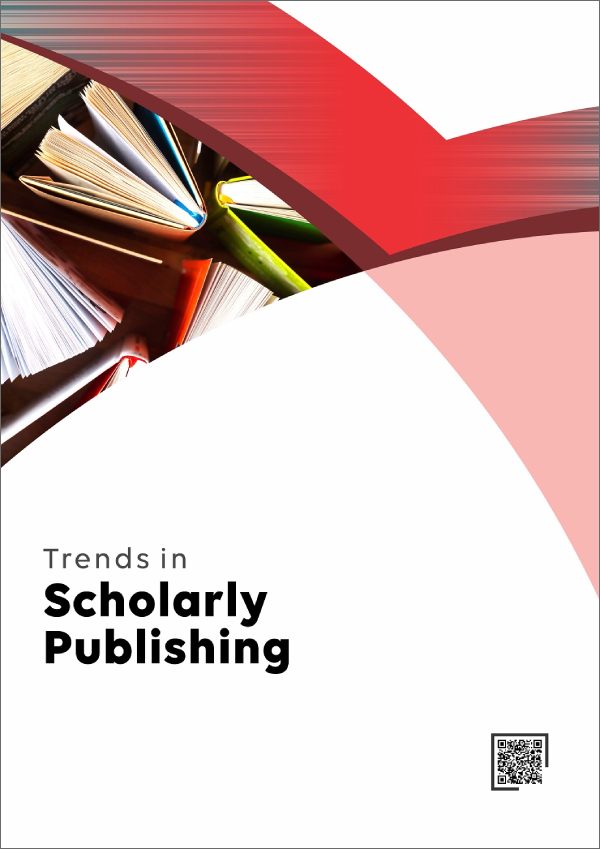Research Misconduct & Ethical Issues
Trends in Scholarly Publishing (TSP) upholds strict ethical standards to ensure that published works are accurate, transparent, and credible. Our Publication Ethics and Malpractice Statement is guided by the principles of the Committee on Publication Ethics (COPE). Editors apply a rigorous peer-review process and maintain a zero-tolerance policy for research misconduct.
Misconduct includes, but is not limited to, plagiarism, data falsification or fabrication, image manipulation, duplicate or redundant submission/publication, inappropriate authorship credit, undeclared conflicts of interest, and failure to obtain ethical approvals. Editors are trained to detect, investigate, and handle such cases diligently.
Researchers are expected to comply with ethical codes and best practices of their institutions, funding bodies, and relevant national and international regulations, from study design through to publication. Where misconduct or ethical issues are suspected, TSP follows COPE flowcharts and may contact authors' institutions or funders. Corrective measures may include corrections, retractions, or rejection of manuscripts.
Ethics in Publication
Trends in Scholarly Publishing fully adheres to and complies with the policies and principles established by the Committee on Publication Ethics (COPE), the International Committee of Medical Journal Editors (ICMJE), and the Asian Council of Science Editors (ACSE). We enforce strict policies on plagiarism, duplicate submissions, fabricated data, and image manipulation. Corrections and retractions are handled transparently and in accordance with COPE Retraction Guidelines. Our editorial team ensures that all manuscripts undergo rigorous peer review and comply with ethical standards for research conduct, authorship, conflicts of interest, and data integrity. TSP is committed to promoting the highest standards of research ethics and publication integrity across all articles we publish.
Author Responsibilities
Authors seeking to publish their papers in the Trends in Scholarly Publishing must comply with the following requirements:
- Present research findings accurately and include an objective discussion of significance.
- Provide sufficient methodological detail to allow reproducibility.
- Deposit raw data in a public repository where possible, or retain it and make it available to editors or reviewers on request for a reasonable period after publication.
- Not submit the same manuscript to more than one journal simultaneously.
- Avoid duplicate publication (e.g., translations, resubmissions, or previously published material).
- Immediately inform the editors of significant errors or inaccuracies discovered in their published work.
- Obtain permissions for reuse of figures or materials published elsewhere, in line with our Copyright and Licensing Policy.
- Avoid plagiarism, data fabrication, and image manipulation. If copied text is used, it must be placed in quotation marks with full citation.
- Cite all sources that inspired the study's design, structure, or language.
Image Manipulation
Images must accurately represent the original data. Only minor adjustments (contrast, brightness, or color balance) applied to the entire image are acceptable, and such adjustments must be disclosed in the cover letter. Inappropriate practices include:
- Adding, moving, or removing features in images
- Combining images that should be shown separately (e.g., from different gels)
- Selective adjustments that obscure or enhance data
If inappropriate image manipulation is detected, manuscripts may be rejected. If detected post-publication, the article may be corrected or retracted. Editors may request original data files for verification.
Duplicate and Redundant Publication
Duplicate submission is when the same study is submitted to multiple journals simultaneously or sequentially. Redundant publication involves fragmenting a study into smaller parts or reusing previously published results without disclosure. This includes self-plagiarism.
Authors must transparently reference related prior publications and explain overlap. Translations, republication of open access articles, or resubmissions without permission or disclosure are considered misconduct.
Plagiarism
TSP strictly prohibits plagiarism in any form. Plagiarism includes copying text, ideas, or data without proper citation, as well as presenting others' work as one's own. All submissions are subject to plagiarism screening. Manuscripts with confirmed plagiarism will be rejected; if plagiarism is identified after publication, the article may be corrected or retracted.
Authors are encouraged to consult the Guide to Ethical Writing for best practices on avoiding plagiarism. For details, see our Plagiarism Policy.
Data Fabrication and Falsification
Data fabrication is the invention of data; falsification is the manipulation of data to produce misleading results. Examples include:
- Altering or omitting data points
- Removing outliers without justification
- Modifying or enhancing images (micrographs, gels, radiological images)
- Adding data not actually collected
Such practices are considered serious misconduct and are grounds for rejection or retraction.
Authorship Issues
TSP follows the authorship guidelines of ICMJE and COPE . Authorship disputes may arise from inappropriate inclusion or exclusion of contributors. To avoid these issues, authors should follow our Authorship Policy, which specifies authorship criteria, contribution statements, and acknowledgment practices.
Undeclared Conflicts of Interest
All authors, reviewers, and editors must disclose financial, personal, or professional relationships that could influence their judgment. Undeclared conflicts may lead to rejection, correction, or retraction. For details, see our Conflict of Interest Policy.
Ethical Approvals
Submissions must comply with ethical approval requirements for studies involving human participants, animals, cell lines, or plants, including informed consent and compliance with national and international standards. For details, see our Ethical Approval Policy.



